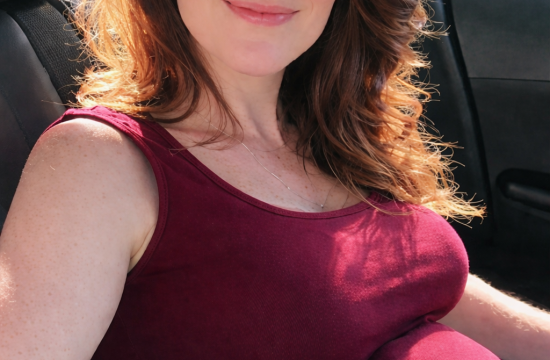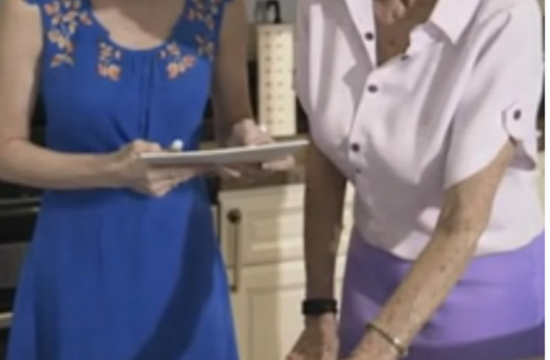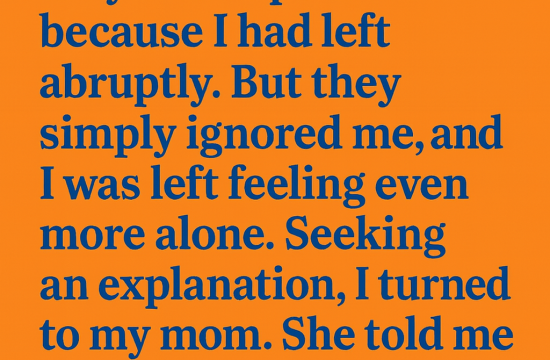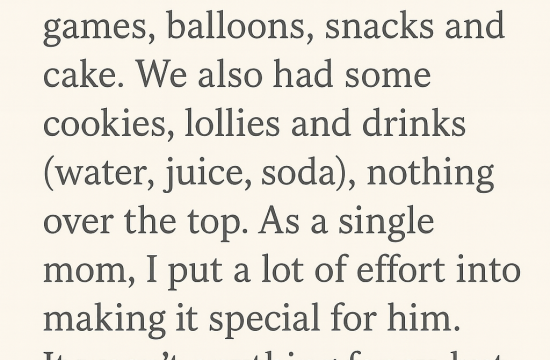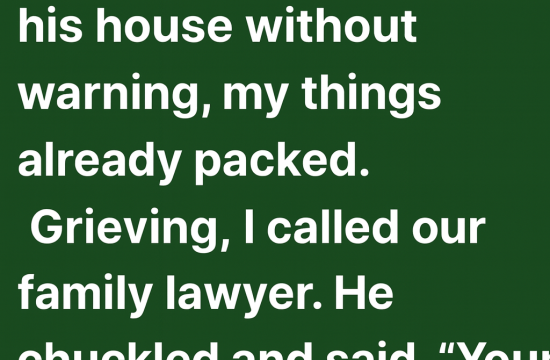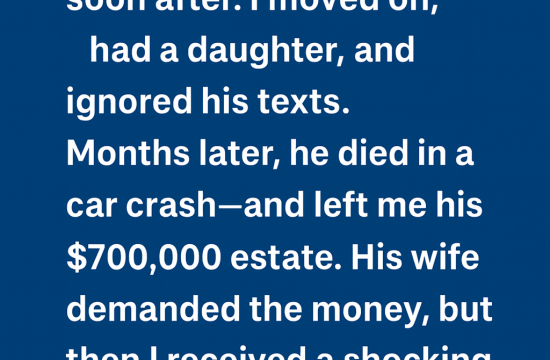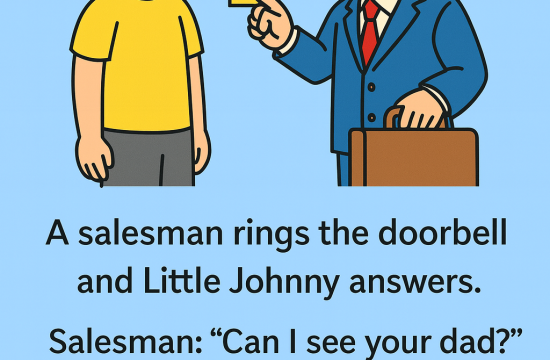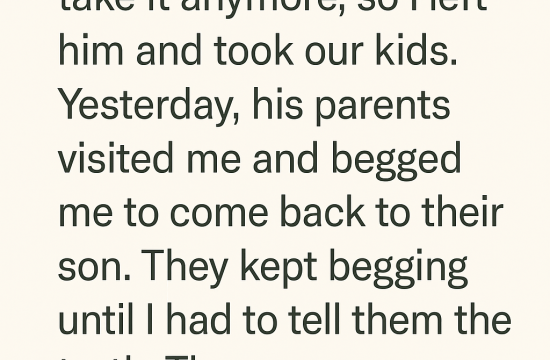I offered to watch my sister’s kids while she attended a weekend retreat with her husband. By Saturday afternoon, I was buried in laundry and dishes when her oldest handed me a folded note. My stomach clenched—it was addressed to “Mommy,” but the handwriting, shaky and unsure, was clearly meant for me.
I opened it and froze.
“Can I live with you instead? Please don’t tell Mom. I’ll be good. I just want to feel safe.”
My heart stopped. The words swam before my eyes. Safe. From what?
It was from nine-year-old Lily—sweet, shy, always clutching her sketchbook like a shield. She often seemed like she was trying to vanish into the wallpaper, but I had chalked it up to being sensitive. Now, I wasn’t so sure.
I called her over, kneeling to meet her eyes. “Sweetheart… what do you mean by this?”
She fiddled with her sleeves, whispering, “Nothing. I was just being silly.”
But kids don’t write notes like that for no reason. Something inside me told me to pay attention.
That night, after the younger kids were asleep, I let Lily stay up to help me fold laundry. The room was quiet except for the hum of the dryer. I finally said, “You can always tell me if something’s bothering you. You’re safe with me.”
Her voice was barely a whisper: “Mom gets mad a lot.”
I kept my tone calm. “Mad how, honey? Does she… hurt you?”
Lily shook her head. “Not like that. She just yells. And throws things. Sometimes she won’t talk to me for days.”
I felt my chest tighten. Bruises you can see. Emotional wounds—those can last forever. Suddenly, little moments clicked into place: how she lit up when I praised her drawings, how she clung to me at drop-offs, how her smile always faded when it was time to go home.
I hugged her tightly. “Thank you for telling me.”
That night I barely slept. Was my sister just overwhelmed with three kids under ten, or was something deeper going wrong? Either way, Lily was hurting.
The next morning, I texted Mel—“Kids are doing great”—but said nothing about the note. Not yet. Instead, I called my friend Cara, a child therapist, and asked for advice without names.
“If a child says they don’t feel safe, believe them,” Cara told me. “Document everything. Even if it’s ‘just’ neglect or anger, that kind of environment can scar a child. Don’t ignore it.”
So I started writing things down. Every comment. Every behavior.
When Mel came back Sunday night, relaxed from her retreat, she beamed. “Best weekend ever! Did they behave?”
I forced a smile. “They were angels.”
But I noticed Lily hanging back. The instant Mel walked through the door, Lily’s shoulders hunched like she was bracing for something. Mel didn’t even notice.
Over the next weeks, I made excuses to visit more often. Babysitting. School pickups. Playdates. Each time, Lily clung to me harder.
One day, in the car, she whispered, “I told Mom I missed you. She said to stop being ungrateful.”
Tears stung my eyes, but I forced a steady voice. “Sweetheart, missing someone means you love them. That’s never ungrateful.”
She didn’t answer. She just turned her face to the window, her reflection rimmed with silent tears.
Things finally broke one Saturday. I was at their house when the baby spilled juice. Mel snapped—at Lily. Her voice sharp, cutting, blaming her eldest for something the toddler had done. Lily crumbled, sobbing, apologizing for nothing.
I couldn’t stay silent anymore.
Later, I pulled Mel aside. “Can we talk about Lily?”
She rolled her eyes. “What now? She’s being dramatic again?”
That word made my blood boil. “No. She’s scared. She wrote me a note asking to live with me.”
Mel froze. “She what?”
“She wants to feel safe.”
Mel’s face hardened. “She’s just sensitive. I’m doing my best.”
“I know you’re trying. But Lily is hurting. This can’t be brushed off.”
She snapped, “So now I’m a bad mother?” before storming out.
But an hour later, her husband Dan found me in the kitchen. His voice was low, tired. “I heard. She’s not lying. Mel… she’s drowning. We both are. If Lily wants to stay with you for a while… maybe that’s best.”
I hadn’t expected that.
Within a week, we had a temporary guardianship agreement. Lily moved into my home. I gave her the spare room, painted it lavender, and tacked up her drawings. She started sleeping through the night. Smiling. Breathing easier.
One evening, while brushing our teeth side by side, she looked at me in the mirror and said, “I can breathe here.”
I swallowed the lump in my throat. “You’re safe, Lily. Always.”
Months passed. Mel visited, sometimes defensive, sometimes apologetic. Therapy helped her face her temper. Parenting classes gave her tools. Slowly, she began to soften.
One weekend Lily stayed over with her parents. When she returned, she slipped me another note. My hands shook as I unfolded it.
“Thank you for listening. I know what love feels like now. I’m not scared anymore.”
I cried.
Eventually, Mel admitted what I think she’d always known. “You give her what I couldn’t. Maybe she belongs with you.”
It was the hardest, bravest thing I’ve ever seen a mother do.
We went to court. Lily stayed with me full-time, though her parents remained part of her life. And she flourished—straight A’s, friends, art shows.
At her high school graduation, Mel stood beside me, clapping and crying. She leaned over and whispered, “You saved her. And you saved me, too.”
That night, Lily hugged us both. “I got lucky,” she said softly. “I had two moms who cared enough to do the hard stuff.”
And she was right.
Because being a parent isn’t about biology. It’s about listening when a small voice whispers, “I’m scared.” It’s about stepping up when it would be easier to step back. And sometimes, it’s about loving hard enough to let go.
Lily may be my niece. But she’s also my daughter—forever, in every way that matters.



